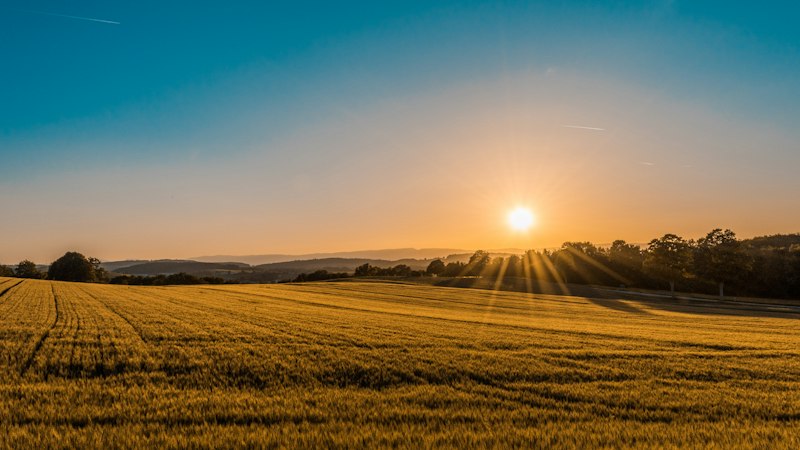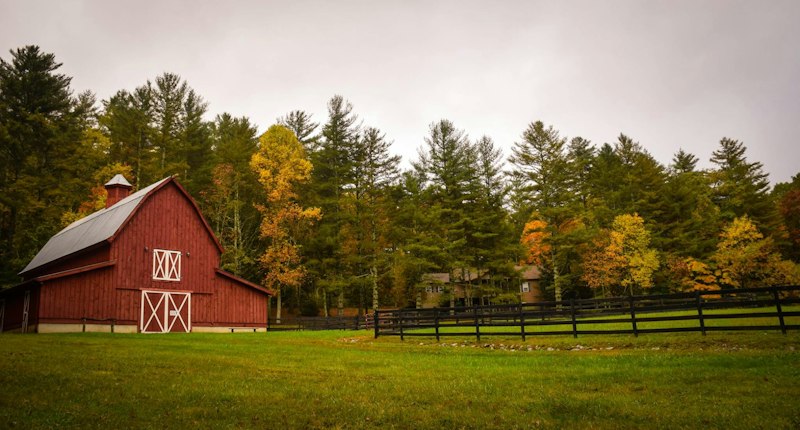When it comes to linguistic diversity, the world is a tapestry of languages. Have you ever wondered which country holds the title for having the most official languages? Prepare to be amazed as we unveil the answer to this linguistic riddle.
Tucked away in the heart of Africa lies a nation that proudly claims the crown for the most official languages: Zimbabwe. Yes, you heard it right! This captivating country boasts a staggering 16 official languages, each contributing to its rich cultural heritage.

In Zimbabwe, language is a vibrant tapestry that weaves together the diverse threads of its people. From Shona to Ndebele, English to Chewa, and many more, this linguistic mosaic reflects the nation’s extraordinary history. Embracing this remarkable linguistic diversity is a testament to Zimbabwe’s commitment to honoring its multicultural roots.
But why does Zimbabwe have so many official languages? The answer lies in its colonial past. Over the centuries, Zimbabwe has been influenced by various external forces, shaping its linguistic landscape. British colonization introduced English as an official language, while the migration and settlement of different ethnic groups contributed to the adoption of local languages.
Imagine strolling through the bustling streets of Harare, the capital city, where conversations resonate in numerous tongues. It’s a symphony of sounds, each language adding a unique melody to the national chorus. Such linguistic variety fosters unity and serves as a reminder of Zimbabwe’s inclusive spirit.
The significance of having multiple official languages cannot be overstated. It ensures that all citizens can fully participate in civic life, access education, and engage with the legal system. It empowers individuals to express themselves in their mother tongue, preserving cultural identities and strengthening social cohesion.
Language Diversity Champions: Which Country Reigns Supreme with the Most Official Languages?
When it comes to language diversity, there is one country that stands out as the reigning champion with the most official languages. Can you guess which country it is? Well, get ready to be amazed because it’s none other than South Africa!
Yes, you heard it right. South Africa takes the crown when it comes to embracing linguistic diversity. This fascinating country boasts a staggering 11 official languages. Just imagine the cultural richness and vibrancy that exists within its borders.
Why does South Africa have so many official languages? The answer lies in its complex history. This land has been shaped by centuries of colonization, indigenous tribes, and diverse immigrant communities. As a result, the government recognized the importance of preserving and promoting linguistic heritage. Hence, the inclusion of multiple official languages.
Now, let’s take a closer look at these remarkable 11 languages. Firstly, we have English, which serves as the lingua franca for business, education, and administration. It brings people from different backgrounds together and helps bridge the communication gap.
Moving on, we have Afrikaans, a language derived from Dutch with influences from local African languages. It is mainly spoken by the Afrikaner community and carries historical significance.
Then, we have Zulu, one of the most widely spoken languages in South Africa. Its melodic tones and rich vocabulary reflect the vibrant culture of the Zulu people.
Next up is Xhosa, a language known for its unique clicking sounds. You might recognize it from the iconic quote “Xhosa is easy” in the movie Black Panther.
Other official languages include Sepedi, Setswana, Sesotho, Swati, Tshivenda, Xitsonga, and Ndebele. Each of these languages represents a distinct community and contributes to the tapestry of South African identity.
The recognition of multiple official languages in South Africa not only preserves cultural heritage but also promotes inclusivity and empowers various communities. It demonstrates that language is a powerful tool for unity and understanding.
South Africa reigns supreme as the country with the most official languages. Its commitment to linguistic diversity is truly awe-inspiring. So, the next time you visit this remarkable nation, take a moment to appreciate the beautiful symphony of languages that coexist within its borders.
Lost in Translation: Exploring the Multilingual Marvel of the Country with the Highest Number of Official Languages
Have you ever wondered about the country with the highest number of official languages? Well, prepare to be amazed as we delve into the multilingual marvel of this extraordinary nation. Get ready to explore the fascinating world of translation and language diversity in a country that takes pride in its linguistic tapestry.

Imagine a place where people seamlessly shift from one language to another, effortlessly navigating the intricacies of communication. This country is a true melting pot of cultures and languages, where the beauty of diversity shines through. With an impressive array of official languages, it’s no wonder that translation plays a crucial role in bridging the gaps between communities.
One might ask, which country holds this linguistic distinction? The answer lies in the heart of . With an astonishing official languages, it stands tall as a testament to the power of language in connecting people and fostering understanding.
But how does this linguistic mosaic impact daily life in ? Well, picture yourself strolling through bustling marketplaces, where vendors skillfully switch between languages to cater to their diverse clientele. Step into a restaurant, and you might hear waitstaff fluently conversing in multiple tongues, ensuring that every patron feels right at home.
The influence of these languages extends beyond everyday interactions. Education, politics, and media all thrive in a multilingual ecosystem. Schools offer instruction in various languages, allowing students to fully embrace their cultural heritage while acquiring essential knowledge. Political debates unfold in a harmonious blend of voices, echoing the inclusive nature of .
While this linguistic richness is undoubtedly awe-inspiring, it also poses unique challenges. Translation services are in high demand, enabling businesses, organizations, and individuals to navigate the complexities of language barriers. Professional translators serve as linguistic magicians, transforming words from one language to another, preserving meaning and intent.
Stands as a shining example of the multilingual marvels our world has to offer. Its vibrant tapestry of languages creates a bridge between cultures, fostering unity and understanding. So, next time you find yourself lost in translation, remember the remarkable country that embraces its linguistic diversity, where communication knows no bounds.
Unlocking Linguistic Treasures: The Surprising Nation Leading the World in Official Languages
Are you ready to embark on a linguistic adventure? Hold on tight as we unlock the linguistic treasures of a surprising nation that proudly leads the world in official languages. Brace yourself for a fascinating journey into the land of Papua New Guinea.
Picture a country where diversity thrives, and languages flourish like vibrant flowers in a tropical paradise. In this captivating nation, over 800 distinct languages coexist, making Papua New Guinea an unparalleled linguistic wonderland. Can you imagine the rich tapestry of cultures and dialects intertwining harmoniously?
While other nations may boast a handful of official languages, Papua New Guinea takes the crown with a staggering count of 820 indigenous tongues. Each language represents a unique heritage, preserving centuries of traditions, stories, and customs passed down through generations. Here, linguistic treasures are revered and celebrated.
The linguistic landscape of Papua New Guinea is a testament to the country’s breathtaking ethnic diversity. With over 7 million people speaking these diverse languages, the nation truly becomes a living library of oral traditions, folklore, and knowledge. It’s a linguistic kaleidoscope that offers a glimpse into the human capacity for expression and communication.
Navigating through Papua New Guinea is akin to exploring a linguistic archipelago. Its vast territory, composed of mountains, valleys, and remote villages, has nurtured countless linguistic islands. Each community cherishes its language, considering it an integral part of their identity and cultural heritage.
But why does Papua New Guinea have such a remarkable array of languages? The answer lies in its geography and historical isolation. Rugged terrains, dense jungles, and scattered settlements have contributed to the development of distinct languages within relatively small territories. Over centuries, these languages have evolved, diverged, and thrived independently.
Unlocking the linguistic treasures of Papua New Guinea unravels a world of awe-inspiring diversity. It’s a vibrant symphony of voices, words, and expressions that captivate the hearts and minds of those fortunate enough to witness it. So, are you ready to immerse yourself in this linguistic marvel and encounter the astonishing nation leading the world in official languages?
Polyglot Paradise: Delving into the Cultural Tapestry of the Country with the Most Official Languages
Have you ever wondered what it would be like to live in a country where linguistic diversity thrives, where multiple languages intertwine harmoniously? Welcome to the polyglot paradise, the land with the most official languages. In this article, we will embark on a journey through the vibrant cultural tapestry of this extraordinary nation.
Imagine strolling down busy streets where conversations in various tongues blend seamlessly into a harmonious symphony. Picture yourself savoring exotic culinary delights while engaging in lively discussions with locals, effortlessly switching between languages. This is the essence of the multilingual experience that awaits you.
Within the borders of this linguistically diverse nation, a multitude of languages coexist as pillars of national identity. Each language reflects the rich history, heritage, and traditions of different ethnic communities. From the moment you arrive, you’ll find yourself immersed in a linguistic kaleidoscope, surrounded by people who effortlessly switch between languages with finesse.
The beauty of a polyglot paradise lies not only in its linguistic diversity but also in the cultural tapestry it weaves. Each language acts as a gateway to a unique world, offering glimpses into the values, beliefs, and customs of its speakers. By immersing yourself in these cultures, you gain a profound understanding of the people and their way of life.
As you delve into the local customs, you’ll discover that each language embodies a distinct rhythm, melody, and cadence. It’s akin to listening to a symphony composed of different instruments, where every language adds its own harmonious notes. Whether it’s the melodic flow of one language or the sharp articulation of another, each linguistic sound paints a vivid picture of the culture it represents.
In this polyglot paradise, language becomes more than a mere tool for communication; it transforms into a bridge that connects people from diverse backgrounds. It fosters a sense of unity and understanding, transcending cultural boundaries and embracing the shared human experience.